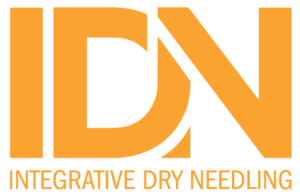Dry Needling: A Possible Detrimental Treatment After Total Hip Arthroplasty
Cureus. 2024 Oct 21;16(10):e72053. doi: 10.7759/cureus.72053. eCollection 2024 Oct. ABSTRACT This case study describes a severe and rare complication following the placement
Prior dry needling training required.
No previous dry needling training required.
These are not dry needling courses.
Learn the neuroRelease technique ON-DEMAND
Learn MSK ultrasound On-Demand
Learn Neurologic Dry Needling On-Demand for Craniocervical conditions
Exclusive Access for IDN clinicians that have taken a course!
Home / My Account / Dry Needling Research
Skin Res Technol. 2024 May;30(5):e13723. doi: 10.1111/srt.13723.
ABSTRACT
BACKGROUND: Notalgia paresthetica (NP) is a rare condition characterized by localized pain and pruritus of the upper back, associated with a distinct area of hyperpigmentation. Given the lack of standardized treatment and the uncertain efficacy of available options, applying procedural methods is of growing interest in treating NP.
AIMS: We sought to comprehensively evaluate the role of procedural treatments for NP.
METHODS: We systematically searched PubMed/Medline, Ovid Embase, and Web of Science until November 14th, 2023. We also performed a citation search to detect all relevant studies. Original clinical studies published in the English language were included.
RESULTS: Out of 243 articles, sixteen studies have reported various procedural modalities, with or without pharmacological components, in treating NP. Pharmacological procedures, including injections of botulinum toxin, lidocaine, and corticosteroids, led to a level of improvement in case reports and case series. However, botulinum toxin did not show acceptable results in a clinical trial. Moreover, non-pharmacological procedures were as follows: physical therapy, exercise therapy, kinesiotherapy, acupuncture and dry needling, electrical muscle stimulation, surgical decompression, and phototherapy. These treatments result in significant symptom control in refractory cases. Physical therapy can be considered a first-line choice or an alternative in refractory cases.
CONCLUSION: Procedural modalities are critical in the multidisciplinary approach to NP, especially for patients who are refractory to topical and oral treatments. Procedural modalities include a spectrum of options that can be applied based on the disease’s symptoms and severity.
PMID:38696233 | DOI:10.1111/srt.13723
Cureus. 2024 Oct 21;16(10):e72053. doi: 10.7759/cureus.72053. eCollection 2024 Oct. ABSTRACT This case study describes a severe and rare complication following the placement
Clin Breast Cancer. 2024 Oct 23:S1526-8209(24)00285-4. doi: 10.1016/j.clbc.2024.10.007. Online ahead of print. ABSTRACT OBJECTIVE: Literature regarding nonpharmacological interventions (NPI) for PMPS or
Arch Dermatol Res. 2024 Nov 13;317(1):13. doi: 10.1007/s00403-024-03449-4. ABSTRACT Melasma is an acquired dysfunction of melanogenesis, that poses a major therapeutic challenge
© Integrative Dry Needling 2023 | All rights reserved | Designed by Weblink
Powered by ![]()
any IDN Course!
*This discount is valid for new registrations only and can not be combined with other discount codes. Offer Expires: 12/31/2023

Not sure which course is right for you? No problem – we created an intuitive process to help!